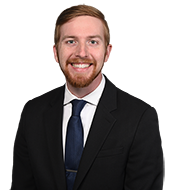Employment Law in the Health Care Industry: 2019 Year in Review
2019 brought continuing changes to employment law issues affecting the health care industry. The following Alert — prepared by K&L Gates’ collaborative team of employment lawyers dedicated to serving health care industry participants — summarizes key health care industry employment law developments in 2019 and provides recommendations for action in 2020.
WAGE AND HOUR
Wage and Hour Litigation Update
In 2019, health care employers faced significant litigation by employees for violations of the Fair Labor Standards Act (“FLSA”) and related state wage and hour laws and were subject to continued scrutiny by the Department of Labor Wage and Hour Division (“DOL”):
- In May 2019, the U.S. District Court for the Northern District of California approved a $20 million settlement that resolved a dispute between a class of more than 8,000 California-based traveling nurses and their employers for alleged violations of state and federal overtime laws.[1]
- In October 2019, the U.S. District Court for the Northern District of California approved a $2.75 million settlement payment from a nursing staffing company to over 2,750 nurses and technicians who alleged that their overtime calculations improperly excluded housing stipends in violation of the FLSA and California law.[2]
- In late November 2019, two Massachusetts nurses filed separate lawsuits against Harvard Pilgrim Healthcare Inc. for misclassification and unpaid overtime.[3] After working for Harvard Pilgrim for a number of years and being classified as exempt workers, the nurses were classified as non-exempt workers in early November. Both nurses claim they were previously misclassified and are entitled to unpaid overtime.
- In April 2019, the DOL won a nearly $130,000 judgment against a Virginia home health care company for misclassification of its workers as independent contractors and failure to pay overtime.[4] The court in that case also found that the owner was personally liable for the unpaid wages and additional liquidated damages.
- In March 2019, the DOL obtained a $1.2 million judgment for back pay and liquidated damages against a Virginia-based home health care provider for miscalculating overtime.[5]
- In August 2019, the DOL announced that two Cincinnati, Ohio home healthcare providers agreed to pay nearly $200,000 in back wages to 62 employees after the DOL’s investigation found that the employers violated the FLSA’s overtime and recordkeeping provisions.
New York Court of Appeals Upholds Thirteen Hour Rule for Home Health Aide Pay
In March, the New York Court of Appeals[6] reversed two 2017 appellate division decisions[7] in their interpretation of the New York State Department of Labor’s “13-hour rule” for home health aides.
The “13-hour rule” exempts employers from paying a live-in aide for each hour of a 24-hour shift, provided that the aide receives at least three hours of meal break time and at least eight hours of sleep (at least five of which must be uninterrupted).
The employees argued that they were on call, and thus were available for work at any moment, so the 13-hour rule should not apply to their 24-hour shifts. The Court of Appeals disagreed, ruling that merely being physically present and able to work if required to do so is not the same as being available for work. The Court of Appeals also reminded employers that noncompliance with the 13-hour rule entitles employees to pay for every hour of a 24-hour shift, not just actual hours worked.
Exemptions for Certain Health Care Professionals in New California Worker Classification Bill
In April 2018, the California Supreme Court held in Dynamex Operations West, Inc. v. Superior Court of Los Angeles County that the “ABC” test applies when determining independent contractor status in California. In September 2019, the California legislature passed AB 5, a bill that takes effect January 1, 2020, and makes the ABC test part of the California Labor Code.
The ABC test requires companies to establish all of the following conditions for a worker to be considered an independent contractor:
(A) the person is free from the control and direction of the hiring entity in connection with the performance of the work, both under the contract for the performance of the work and in fact;
(B) the person performs work that is outside the usual course of the hiring entity’s business; and
(C) the person is customarily engaged in an independently established trade, occupation, or business of the same nature as that involved in the work performed.
Factors (B) and (C) are analyzed first. If a single factor is not met, the worker is an employee.
AB 5, however, contains a professional exemption for certain licensed health care professionals. This means that the ABC test does not apply to California-licensed physicians, surgeons, dentists, podiatrists, psychologists, or veterinarians performing professional or medical services provided to or by a health care entity, including an entity organized as a sole proprietorship, partnership, or professional corporation.
Instead, the determination of employee or independent contractor status for these health care professionals is governed by the previous, more flexible test set forth in the California Supreme Court’s decision in S. G. Borello & Sons, Inc. v. Department of Industrial Relations. For all other health care professionals, the ABC test must be used to determine whether a worker is considered an independent contractor.
NON-COMPETITION AGREEMENTS
Changes to Florida Physician Non-Compete Law
Florida restrictive covenants are generally enforceable if reasonably limited as to time and territory.[8] However, in June 2019, the Florida Legislature amended the state’s non-compete law to prohibit non-compete agreements between a physician and an entity that employs or contracts with, either directly or indirectly, all physicians who practice the same specialty within the same county.
The new law, effective July 1, 2019, provides that such a restrictive covenant shall remain void and unenforceable for a three-year period following the entry of a second employer to the market that, either directly or through related or affiliated entities, employs one or more physicians who practice the same medical specialty. Such restrictive covenants are void and unenforceable because they are not supported by a legitimate business interest. The legislature indicated that such covenants do not benefit patients, since they restrict patient access to physicians and increase healthcare costs.
The new law faced a swift constitutional challenge from 21st Century Oncology, Inc., an employer that employed all of the radiation oncologists in Lee County, Florida.[9] 21st Century Oncology, Inc. sought a preliminary injunction against enforcement of the revised statute, arguing that the law was crafted by lobbyists, unconstitutionally vague, and allowed former employees to avoid their non-compete obligations without a legitimate public purpose. The U.S. District Court for the Northern District of Florida disagreed, upholding the law and finding that the Florida Legislature could reasonably conclude that increasing competition by voiding certain non-compete agreements would have a positive effect on access to affordable healthcare.
The revised statute’s impact is likely to be somewhat limited, however, because it is only applicable where the employer at issue employs all of the specialists in a given county.
DISCRIMINATION AND HARASSMENT
California Implicit Bias Training Law: AB 241
Beginning in 2022, California will require its physicians, surgeons, nurses, and physician assistants to take implicit bias training as part of their continuing education requirements.[10] Specifically, these courses must address:
- “Examples of how implicit bias affects perceptions and treatment decisions . . . , leading to disparities in health outcomes”; or
- “Strategies to address how unintended biases in decision-making may contribute to health care disparities by shaping behavior and producing differences in medical treatment along lines of race, ethnicity, gender identity, sexual orientation, age, socioeconomic status, or other characteristics”; or
- A combination of the two topics.
Continuing education courses “dedicated solely to research or other issues that do not include a direct patient care component” will not be required to include implicit bias training. Continuing education courses for physicians and surgeons in other states are also exempted from the requirements.
Accrediting associations for physicians and surgeons must develop standards for these courses before January 1, 2022. Course providers for nurses and physician assistants will be audited once every five years beginning on January 1, 2023, and may have their approval rescinded or withheld if they are not in compliance.
EEOC Sues Nursing Home for Violation of the Equal Pay Act
In 2019, the healthcare industry continued to face pay equity challenges, as gender-based pay disparity continues to exist in both physician and non-physician roles in the industry. In September 2019, the Employment Opportunity Commission (“EEOC”) sued Kansas City nursing home Edgewood Manor Center for Rehab and Care, alleging a violation of the Equal Pay Act.[11]
The suit alleges that the nursing home paid a female licensed practical nurse (“LPN”) $21 dollars per hour, while paying two male LPN’s who performed the same job $25 dollars per hour. The case is ongoing. The fact that the EEOC chose to bring this case against a nursing home serves as a reminder that healthcare employers must regularly audit their pay practices and engage in proactive self-evaluation regarding any potential disparities in pay based on gender.
Religious Discrimination and Employer-Mandated Vaccination Requirements
In 2019, healthcare employees continued to file lawsuits claiming they were denied religious accommodations from employer-mandated vaccination requirements. These cases typically involve employers who either categorically deny vaccine exemption requests or refuse to offer alternatives, such as allowing an employee to wear a mask during flu season. However, 2019 also saw state and federal efforts to enact religious liberty laws, which, in part, do not permit employers to argue a hardship in granting vaccination accommodations to workers.
EEOC v. Memorial Healthcare
In EEOC v. Memorial Healthcare,[12] Memorial Healthcare refused to hire or accommodate a medical transcriptionist because of her religious beliefs against receiving vaccines. The transcriptionist offered to wear a mask during flu season. Notably, Memorial Healthcare had a policy that permitted employees who could not receive the flu shot due to medical reasons to wear a mask during flu season but refused to extend the policy as a religious accommodation. Memorial Healthcare agreed to pay $74,418 to settle the case.
Department of Health and Human Services “Conscience Rule”
The Department of Health and Human Services (“DHHS”) published a final rule, known as the “Conscience Rule,” which, among other things, could be interpreted to permit health care workers to refuse to administer or provide vaccinations due to their religious beliefs. Unlike the Americans with Disabilities Act, the Conscience Rule does not permit employers to argue a hardship in granting accommodations to workers. Further, while individual employees cannot bring a private lawsuit against their employers under the rule, the rule does allow DHHS to completely strip federal funding from health care providers that run afoul of the Conscience Rule.
The Conscience Rule was scheduled to go into effect on November 20, 2019. However, the final Conscience Rule was recently struck down, in a case consolidating lawsuits filed by 19 states and additional organizations against the rule, by a federal district court in New York.[13] The court reasoned that the Conscience Rule was deficient because DHHS’ authority to strip all federal funding as an enforcement measure was unlawfully coercive. The court also found that the Conscience Rule conflicted with other federal laws governing the obligations of employers to accommodate workers’ religious views. DHHS has not yet announced whether it to plans to appeal the District Court’s ruling.
Ohio House Bill 268
Lawmakers in Ohio introduced House Bill 268 (“HB 268”), which provides that employers cannot discharge, refuse to hire, or otherwise discriminate against employees or prospective employees “on the basis that the person has not been or will not be vaccinated against any illness or disease” for reasons related to “medical contraindication or for reasons of conscience, including religious beliefs.” HB 268 provides for compensatory and punitive damages, and, like the Conscience Rule, it does not contain a hardship exemption for employers. The fate of HB 268 is unclear as HB 268 is still under committee review. Nonetheless, HB 268 is an example of a state-level religious liberty law that could impact health care employers.
Employers May Face Title VII Liability For Harassment Committed by Patients and Third Parties
In Gardner v. CLC of Pascagoula,[14] a certified nursing assistant brought a hostile work environment sexual-harassment claim against her former employer based on a particular patient’s alleged repeated physical and verbal abuse. After an incident in which the patient allegedly groped and punched the plaintiff, she sought hospital treatment and took workers’ compensation leave. Upon her return three months later, she was terminated for insubordination for refusing to continue to care for the patient. The plaintiff sued under Title VII and Mississippi state law, seeking to hold the employer liable for the alleged harassment.
The district court granted summary judgment in favor of the hospital, but the Fifth Circuit Court of Appeals reversed, holding that a genuine issue of material fact existed as to whether the patient’s harassment was severe or pervasive, and finding it significant that the resident had dementia.[15]
The Fifth Circuit emphasized the additional requirement the plaintiff must show to establish liability — that the employer knew or should have known about the harassing conduct and whether it took “reasonable measures” to stop the harassment. The ultimate focus of Title VII liability is on the employer’s conduct and the employer’s reaction if it knew or should have known about the existence of workplace violence or hostile work environment.
WORKPLACE VIOLENCE
Federal Lawmakers Propose Bill to Address Health Care Workplace Violence
In February 2019, Representative Joe Courtney (D-CT) introduced H.R.1309 — Workplace Violence Prevention for Health Care and Social Service Workers Act (the “Act”). The Act is aimed at requiring employers in the health care and social service sectors “to develop and implement a comprehensive workplace violence prevention plan to protect health care workers, social service workers, and other personnel from workplace violence.” The law would require covered employers to develop and implement a workplace violence prevention plan, maintain records on workplace violence incidents, and adopt anti-retaliation policies.
On November 21, 2019, the Act passed the House of Representatives and is pending in the Senate. We will continue to monitor the progress of the Act.
MEDICAL MARIJUANA AND DRUG TESTING
Illinois Passes the Cannabis Regulation and Tax Act and Amends it to Provide Much Needed Clarity to Employers
With the passage of the Cannabis Regulation and Tax Act (HB 1438) (the “Cannabis Act”), effective January 1, 2020, Illinois became the eleventh state to legalize the adult recreational use of marijuana.
The Cannabis Act allows an employer to implement reasonable zero tolerance drug testing, prohibit employees from being under the influence of marijuana at work, and discipline or terminate employees for violating drug-related workplace policies. It also provides that it does not create an express or implied private right of action against an employer for a variety of actions an employer may take to enforce workplace drug policies.
After the act was passed, many employers wondered what this meant for drug testing, as the Cannabis Act also amended Illinois’ Right to Privacy in the Workplace Act (“Right to Privacy Act”) in a way that seemed to prohibit adverse employment action based on positive marijuana drug tests. The Right to Privacy Act prohibits an employer from taking adverse employment action against based on an individual’s use of “lawful products off the premises of the employer during nonworking hours.” The Cannabis Act amended the Right to Privacy Act’s definition of “lawful products” to mean “products that are legal under state law.” On November 14, 2019, the legislature amended the Cannabis Act to address employers’ drug testing concerns by providing that an employer’s ability to enforce a reasonable workplace drug policy and to be free from liability for doing so includes, but is not limited to,
- [S]ubjecting an employee or applicant to reasonable drug and alcohol testing, reasonable and nondiscriminatory random drug testing, and discipline, termination of employment, or withdrawal of a job offer due to a failure of a drug test.
The Cannabis Act also expressly insulates an employer from any injury, loss, or liability to a third party from the employee’s alleged impairment if the employer did not know or had no reason to know the employee was impaired.
Finally, the Cannabis Act asserts that federal government contractors or employers that receive federal grants are still required to comply with the federal Drug Free Workplace Act and can implement policies relating to marijuana use to ensure their compliance.
While the November 14, 2019 amendment answered a key question Illinois employers had after the Cannabis Act’s passage, the current law still leaves open the following important employment issues:
- The law does not have an express carve out for workers in safety-sensitive positions (unless they are subject to federal laws or receive grants). Whether the law’s focus on safety and its assertion that “employer workplace policies shall be interpreted broadly to protect employee safety” will allow employers to take a strict approach to marijuana use by safety-sensitive employees is unresolved.
- The law allows employers to prohibit marijuana use while “on-call” (scheduled, with at least 24 hours’ notice, to be on standby or working), which implicates many health care workers. However, Illinois health care employers should consider whether uniform workplace drug policies are appropriate and may have to update their policies to distinguish between workers who are on-call and those who are not.
- The law does not address workplace accommodations. Recent federal and state court rulings outside of Illinois suggest that Illinois employers may need to reasonably accommodate medical marijuana use outside of the workplace.
- The law does not define what it means to have a “good faith basis” to believe that an employee was under the influence of marijuana and does not articulate what constitutes a “reasonable workplace drug policy.”
These open issues will likely be tested in the courts in the coming years as employers and employees explore the limits of the law.
New Jersey Passes the Jake Honig Compassionate Use Medical Cannabis Act
On July 2, 2019, the Jake Honig Compassionate Use Medical Cannabis Act[18] (the “Honig Act”) significantly expanded New Jersey’s marijuana laws. The Honig Act amended New Jersey’s Compassionate Use Medical Marijuana Act,[17] which was passed in January 2010 and established a medical marijuana program for seriously ill patients. The Honig Act includes job protections for medical marijuana users and imposes new drug testing procedures.
Specifically, the law makes it “unlawful to take any adverse employment action against an applicant or employee who is a registered” medical marijuana user “based solely on the employee’s” medical marijuana use. If an applicant or employee tests positive for marijuana, the Honig Act requires employers to provide the employee with a written notice of the employee’s right to provide proof of a valid medical explanation for the result within three working days after the employee’s receipt of the notice. If the applicant or employee produces that proof, the employer cannot make an adverse employment decision based solely on the positive test.
The law exempts employers obligated to maintain a drug free workplace because of the employer’s status as a federal contractor or its receipt of federal funding or a licensing-related benefit under federal law.
The law does not impact an employer’s ability to prohibit, or take adverse employment action for, the possession or use of intoxicating substances during work hours or on the premises of the workplace outside of work hours. It is unclear what this provision means for an employer’s ability to use drug tests to enforce a workplace drug policy prohibiting employees from being under the influence of or in possession of marijuana while working or on the premises.
Further, the Honig Act does not require employers to accommodate employees’ medical marijuana use. The New Jersey Supreme Court will have an opportunity to address the interaction between the Honig Act and the New Jersey Law Against Discrimination (the “NJLAD”) in its forthcoming ruling in Wild v. Carriage Funeral Holdings, Inc. Open questions include whether the Honig Act is retroactive, whether it gives an employee a private right of action, and whether it requires employers to engage in an interactive process with medical marijuana users under the NJLAD.
New York City’s and Nevada’s Limits on Pre-Employment Drug Testing Will Not Apply to Most Health Care Workers
In April 2019, the New York City Council passed Int. 1445-A, a groundbreaking law that prohibits employers from testing prospective employees for marijuana. Int. 1445-A goes into effect on May 10, 2020. In June 2019, Nevada passed the less aggressive A.B. 132, which makes it unlawful for employers to refuse to hire an applicant because of a positive marijuana drug test. A.B. 132 went into effect on January 1, 2020. Neither law affects an employer’s right to prohibit employees from working while under the influence of marijuana.
Importantly, both laws contain important exceptions that render the laws inapplicable to most health care job applicants.
Int. 1445-A
Under New York City’s law, the wholesale prohibition against pre-employment drug testing for marijuana does not apply to, among others:
- applicants for jobs that require supervision or care of children, medical patients, or “vulnerable persons” under Section 488(15) of the New York Social Services Law;
- applicants for positions that “significantly impact the health or safety of employees or members of the public”; and
- where required under federal government contract or grants.
A.B. 132
Nevada’s law prevents employers from refusing to hire a job applicant or rescinding a job offer because of a positive marijuana drug test. In addition, if employers require an employee to submit to a drug test within the first 30 days of employment and the test results are positive, the employee must be able to take another test, at his or her expense, to rebut the original results and the employer must accept and give appropriate consideration to the second test results.
The law does not prohibit pre-employment drug testing if doing so would conflict with an employment contract, collective bargaining agreement, or federal law. The law also does not apply to applicants for positions as emergency medical technicians, for positions funded by federal grant, or for positions that, “in the determination of the employer, could adversely affect the safety of others.”
Health care employers in Nevada will have to consider the reach of the law’s “safety exception” if they have pre-employment drug testing policies.
STAFFING RATIOS
The Safe Patient Limits Act: Illinois Mulls Mandatory Nurse-To-Patient Ratios
Illinois House Bill 2604 (“HB 2604” or the “Bill”), entitled the Safe Patient Limits Act, would establish mandatory nurse-to-patient staffing ratios and is currently pending in the Illinois General Assembly. HB 2604 proposes specific limits on the number of patients that may be assigned to a registered nurse, depending on the type of hospital unit.
Across the country, 14 states have enacted laws addressing nurse staffing levels. These types of bills are an attempt to address concerns from nurses’ unions and patient care advocacy organizations, with supporters focusing on the ability of mandatory ratios to ensure quality of patient care and improved patient outcomes. Despite its ardent supporters, health care organizations and hospital associations counter that HB 2604 and similar legislation will only increase medical costs and patient wait times, while exacerbating the nursing shortage both in Illinois and across the nation.
HB 2604’s mandates would extend to numerous facilities across the state. Covered facilities would be required to adhere to specific nurse-to-patient ratios, ranging from one to four patients per nurse, with the specific ratio depending upon the category of patient. Amendments to the bill address implementation procedures for fluctuating patient census as well as public health emergency scenarios. Covered facilities that fail to comply with HB 2604’s requirements would face a penalty of up to $25,000 per day of noncompliance following written notification by the Illinois Department of Public Health.
Though HB 2604 faces strong opposition from the Illinois Health and Hospital Association, if enacted, it would require covered facilities to overhaul their staffing administration to maintain compliance. Illinois nursing standards currently require hospitals to develop and maintain a written plan addressing staffing of nurses, but under HB 2604, most if not all facilities would likely be forced to implement entirely new staffing protocols. If enacted, HB 2604 may also serve as the catalyst for the handful of other states[18] mulling similar legislation to codify staffing ratios.
RECOMMENDED ACTIONS FOR HEALTH CARE EMPLOYERS
2019 brought a wave of significant legislation and case law across multiple states which impact healthcare industry employers. To minimize the potential risks and costs of litigation, healthcare employers should consider reviewing handbooks, policies, and practices to ensure ongoing compliance with the ever-evolving employment law landscape:
- Review wage and hour policies to ensure compliance with all state and local regulations.
- Health care providers in Florida should carefully review their restrictive covenant agreements with physicians to determine whether such agreements could be impacted by Section 542.336.
- Evaluate compensation plans and policies in order to avoid EEOC charges and potential litigation. Pay particular attention to gender-based pay disparity.
- Review employer-mandated vaccination requirements to anticipate potential religious exemption requests. Continue to monitor the growing number of religious liberty laws.
- Title VII requires healthcare employers to protect their medical staff and employees from harassment and discrimination, even when that behavior comes from a patient, and to take prompt and appropriate corrective measures when a patient engages in harassing or abusive behavior. Educate employees on how to address workplace harassment and discrimination.
- Health care employers in Illinois should monitor any legislative and judicial developments relating to the Cannabis Act to obtain as much guidance as possible in some of the murkier areas of the act. All health care employers should continue to monitor changing laws related to marijuana use.
- Health care employers in New Jersey should keep the Wild case on their radar and should carefully review any further legislative rules or guidance that might be issued as the state updates and implements its workplace drug policies.
- Prioritize reviewing employee classifications, overtime and break policies, and enforcement of those policies to limit exposure.
- California health care employers should review their workforce to ensure compliance with AB 5. This includes evaluating any independent contractors that may need to be reclassified according to the ABC Test.
K&L Gates’s team of health care employment lawyers is available to answer any questions regarding these matters.
Notes:
[1] Shaw et al v. AMN Services, LLC, et al., N.D. Cal., No. 3:16-cv-02816 JCS.
[2] Dalchau, et al. v. Fastaff, LLC, N.D. Cal., No. 17-cv-01584.
[3] Duffey v. Harvard Pilgrim Healthcare Inc., D. Mass., No. 19-cv-12380; Schutz v. Harvard Pilgrim Healthcare Inc., D. Mass., No. 19-cv-12381.
[4] Acosta v. At Home Personal Care Services LLC, et al., E.D. Va., No. 18-cv-00549.
[5] Secretary of Labor v. Access Home Care, Inc., et al., E.D. Va., No. 18-cv-00581.
[6] Andryeyeva v. New York Health Care, Inc., 33 N.Y.3d 152 (N.Y. 2019).
[7] Andryeyeva v. New York Health Care, Inc. 61 N.Y.S.3d 280 (Sup. Ct. N.Y. 2017); Moreno v. Future Care Health Services, Inc.61 N.Y.S.3d 589 (Sup. Ct. N.Y. 2017).
[8] See Fla. Stat. § 542 (2019).
[9] 21st Century Oncology, Inc. v. Moody, No. 4:19-cv-00298-MW-CAS, 2019 WL 3948099 (N.D. Fla. Aug. 21, 2019).
[10] Bus. & Prof. Code §§ 2190.1(d)(1), 2736.5(a)(1), 3524.5(b)(1).
[11] EEOC v. Edgewood Manor OPCO LLC, Case No. 19-CV-00760.
[12] EEOC v. Memorial Healthcare, No. 2:18-cv-10523 (E.D. Mich, June 21, 2019).
[13] State of New York v. United States Department of Human Services, No. 1:2019 civ. 04676-PAE (S.D.N.Y. 2019).
[14] Gardner v. CLC of Pascagoula, LLC, No. 17-cv- 60072, 2017 WL 487031 (S.D. Miss. Feb. 6, 2017).
[15] Gardner v. CLC of Pascagoula, LLC, 915 F.3d 320 (5th Cir. 2019).
[16] N.J.S.A. C24:61:2, et seq.
[17] N.J.S.A. 24:61-2, et seq.
[18] Advocacy groups Florida, Iowa, Minnesota, New Jersey, New York, Texas, and the District of Columbia are asking state lawmakers to consider similar measures.
This publication/newsletter is for informational purposes and does not contain or convey legal advice. The information herein should not be used or relied upon in regard to any particular facts or circumstances without first consulting a lawyer. Any views expressed herein are those of the author(s) and not necessarily those of the law firm's clients.









